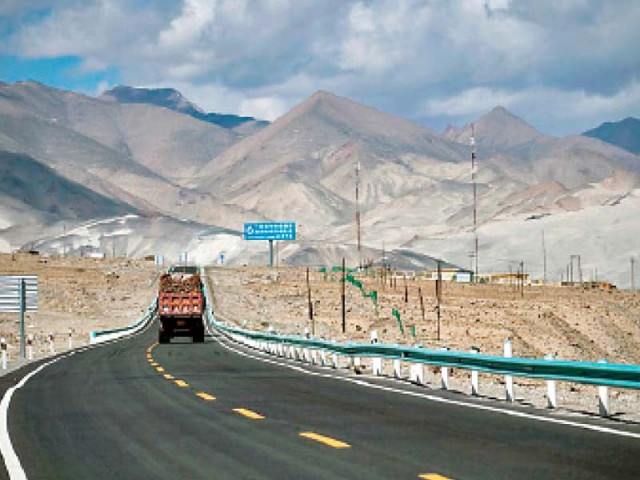Security termed crucial to CPEC stability
Parliamentary panel calls for incentivising industries in SEZs

The Parliamentary Committee on China-Pakistan Economic Corridor (CPEC) on Wednesday noted that security of the China–Pakistan Economic Corridor (CPEC) was crucial to achieve economic stability, maintaining that lack of security could affect businesses.
The 37th committed meeting, presided over by MNA Sher Ali Arbab, was briefed over a range of issues, including security measures set in place for the projects undertaken within the CPEC framework, the Main Line-1 (ML-1) project with special focus on the ET component and the progress on Special Economic Zones (SEZs).
The committee observed that the establishment of SEZs would be futile if industries were not installed timely. The issues pertaining to the sale and cancellation of plots in the SEZs need to be resolved at the earliest so that the process of establishing industries in SEZs could be expedited.
The panel stressed the need to move towards ease of doing business so as to attract massive local and foreign direct investment in Pakistan. The committee highlighted that quarters concerned should incentivise industries in the SEZs in such a way that the SEZs established in Pakistan could compete with other countries in the region.
“Moreover, apart from focusing on agriculture and industrial sectors, the untapped potential in tourism should also be exploited. It noted that a great deal of revenue and employment opportunities could be generated by establishing integrated tourism zones in the country under CPEC,” a statement quoted members of the panel as saying.
The committee, while receiving the briefing on security measures for projects under the CPEC framework, maintained that issues faced by SEZs in terms of security measures affect businesses.
Read More: CPEC JCC to be held this month: envoy
It was noted that measures to facilitate smooth and easy businesses in Pakistan was the top priority in order to ensure economic stability which, in turn, will lead to peace and security in Pakistan.
The members asserted that the goals envisaged under the CPEC would remain elusive without local ownership, therefore, issues faced by locals in terms of security arrangements should be resolved at the earliest so that local ownership of CPEC projects could be secured.
Regarding the promising results of the Electric Traction (E.T) component in the Mainline-1 (ML-1) project, the committee members were of the view that the world was fast moving towards the adoption of modern technologies.
“Adding Electric Traction (E.T) component in Mainline-1 (ML-1) project after 8 to 10 years would become obsolete and costly,” the statement added.
They said that given the huge benefit of the ET component in ML-1 in terms of its payback, cost and compatibility with the environment, “we need to move towards its adoption right from now and upgrade the existing infrastructure”.
The government has planned to establish nine special economic zones all across the country.
The nine zones include one located in each of the provinces, one model zone in the capital territory, Moqpondass in Gilgit-Baltistan, Mohmand Marble City in FATA, Bhimber Industrial Zone in AJK, Industrial Park on Pakistan Steel Mills Land at Port Qasim near Karachi under federal government control.
The idea of a special economic zone (SEZ) is to establish a specific area of land to promote industrial growth by providing special concessions in tax and economic policies.



















COMMENTS
Comments are moderated and generally will be posted if they are on-topic and not abusive.
For more information, please see our Comments FAQ